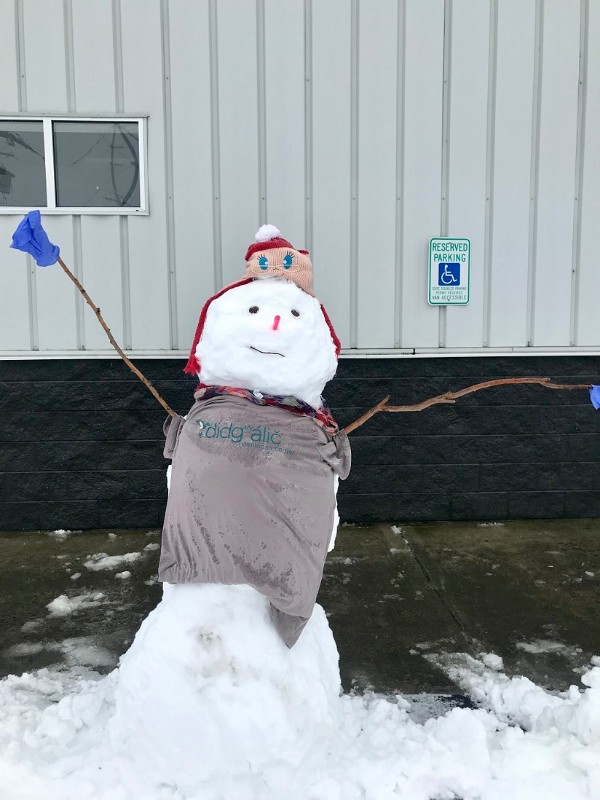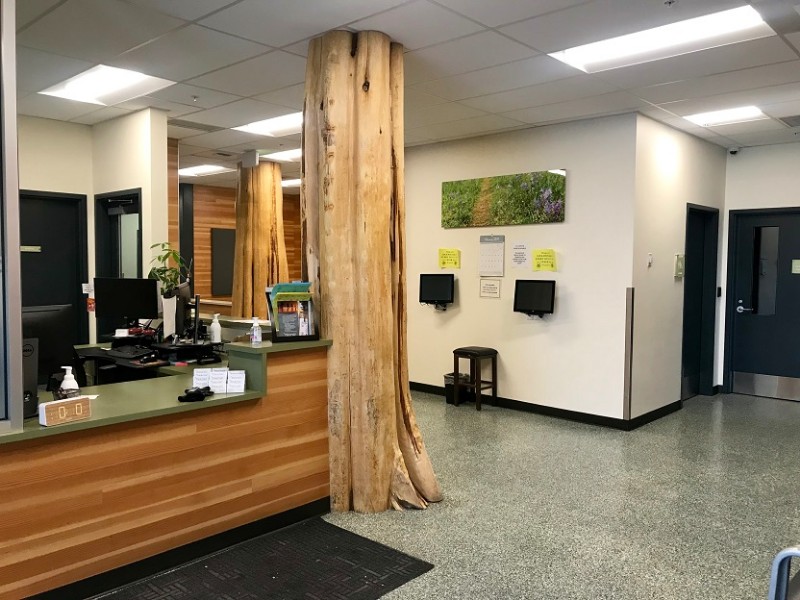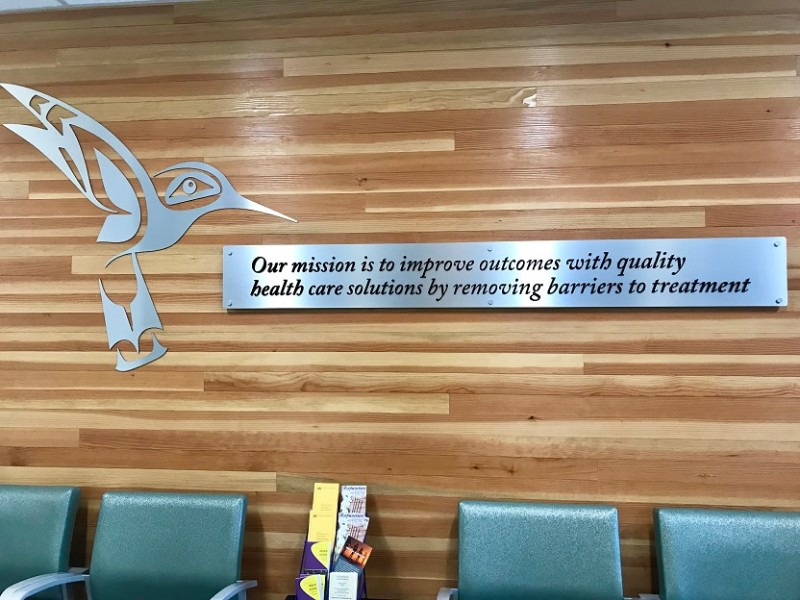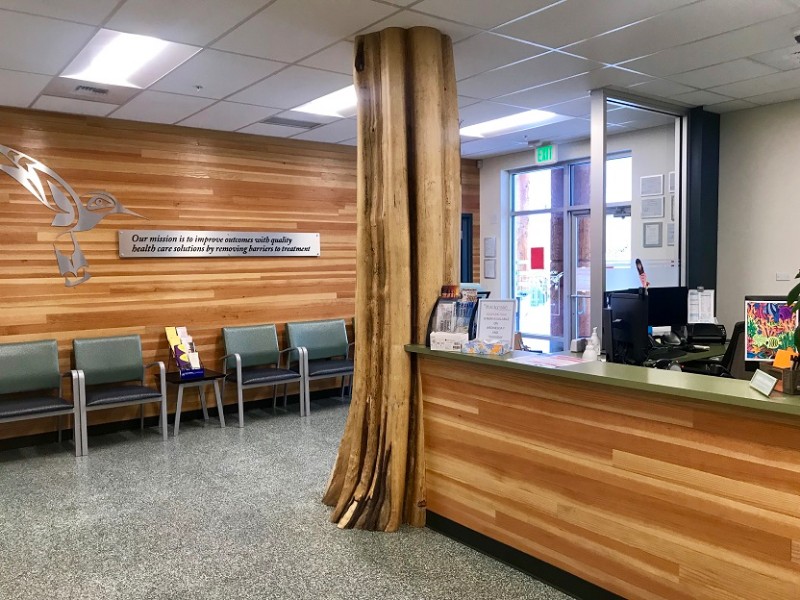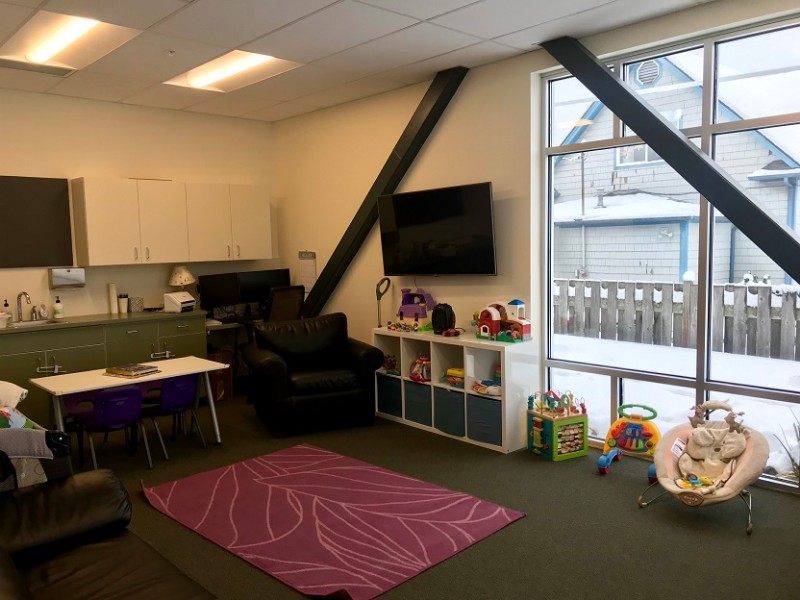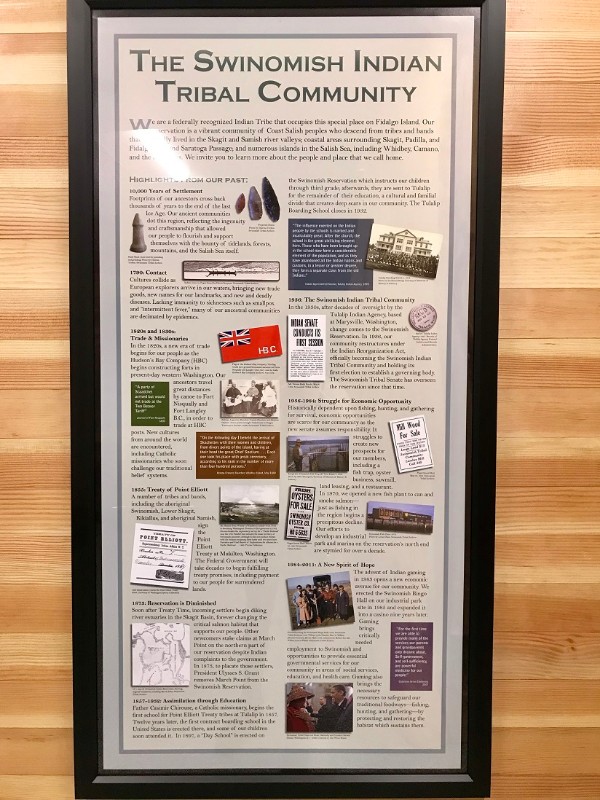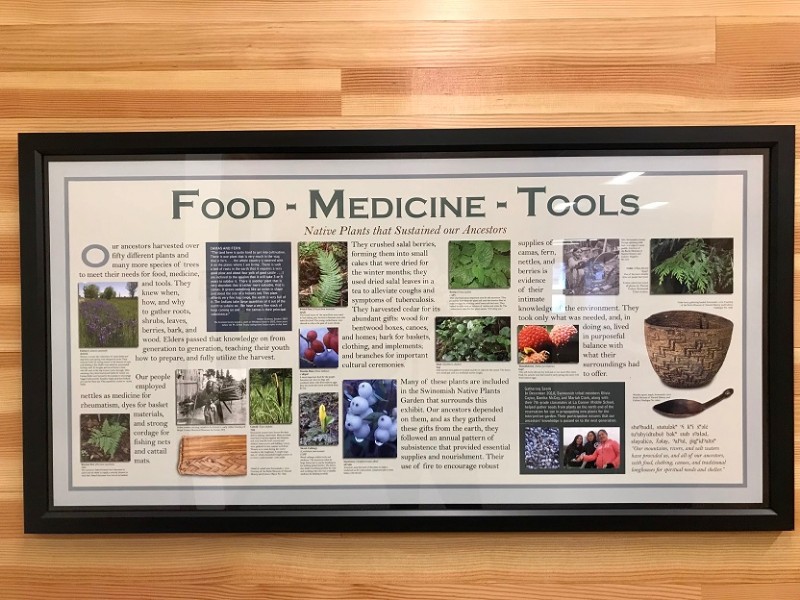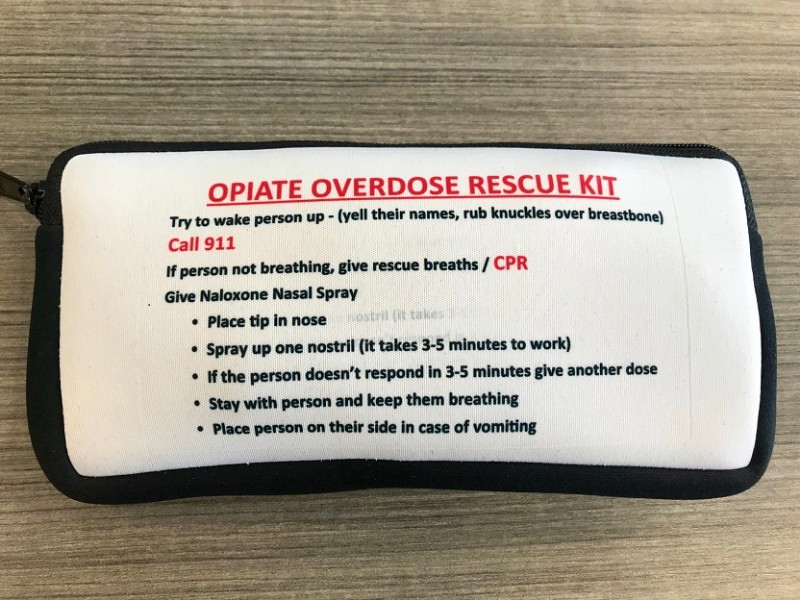
IMG_2127

IMG_2209

IMG_2226

IMG_3362

IMG_4650

IMG_7770

IMG_7956

IMG_9568
Place Category: Specialized Court Projects
- SWINOMISH INDIAN TRIBAL COMMUNITY DIDGʷÁLIČ WELLNESS CENTER
- PROGRAM DESCRIPTION
- PLANNING & IMPLEMENTATION
- PROGRAM OUTCOMES
Summary: The didgʷáličWellness Center, which is owned and operated by the Swinomish Indian Tribal Community, provides out-patient treatment services for tribal members as well as non-native individuals suffering from substance use disordersand behavioral health issues. The Center is one of the only programs in the nation to holistically combine a unique set of servicesinto one facility, and the only tribal center to do so. didgʷáličoffers SUD counseling, full-service medication assisted treatment with Suboxone, Methadone and Vivitrol,child care,group counseling,acupuncture, mental and behavioral health, primary medical care, free transportation, andsocial worker case management. Fully funded by the Tribe, the Center takes walk-in clients and clients referred for services bythe Swinomish Wellness Court and the local County Court. Within just over a year of opening, the Center is close to reaching its capacity of 300 clients. The Tribe plans to expand the Center, doubling its capacity and adding to its menu of services.
Tribe:
Swinomish Indian Tribal Community
Program Running Length:
November 2017 – Present
Contact:
Kim Baker, Social Worker
P: (360) 588 – 2800
F: (360) 588 – 2808
[email protected]didgʷálič Wellness Center
8212 S. March Point Rd.
Anacortes, WA 98221
www.didgwalic.comLocation:
Anacortes, WA
Land Characteristics:
The didgʷálič Wellness Centeris innorthwest Washington, on Swinomish Tribal lands on the peninsula of Anacortes, WA in the Puget Sound. Itprovides comprehensive free clinic transportation for patients and is alsowell situated along 2-3 main public transportation lines, allowing clients from the surrounding communities, including Swinomish Reservation residents, easy access to the Center. The surrounding area is lush with large trees, Puget Sound within sight, and the Olympic Mountains visible on a clear day.
Population:
The didgʷálič Wellness Center serves tribal members of the Swinomish Tribe, members of other Tribes in the local area,and non-tribal members living in the surrounding communities.
The didgʷáličWellness Center was developed to respond to the opioid epidemic, as Native Americans suffer the highest per capita rate of opioid overdoses of any demographic in the nation. After a series of devastating losses in the community, the Swinomish Senate embarked on a plan to develop a treatment program that would rely on the best evidence-based medicine to save lives and to prevent their removal from the community into the criminal justice system.The Center serves adults aged 18 and over who need substance use disorder and mental health services. It places high priority on clients with co-occurring illnesses, participants who are referred from the Swinomish Healing to Wellness Court, and clients who are struggling with addiction.In 2012, the Swinomish Tribe began expanding its existing Wellness Program, which had originally developed as a counseling program primarilyto treat alcoholism. The first expansion addedan intensiveoffice-based Suboxone program for patients with opioid use disorder. Next, the program opened its doors for non-Native family members of Tribal patients in order to provide wellness services to whole families. During this time, the opioid crisis continued to worsen. It became evident that some patients not only needed more intensive services, but also that the non-native community and other local Tribal communities lacked access to treatment services in greater northwest Washington state. To address this, two leaders at the Swinomish Tribal Clinic, John Stephens and Dawn Lee, began to develop a plan toexpand services to meet these needs in the community. After an intensive planning processthe didgʷáličWellness Center opened its doors 19 months later.Throughout the planning process, Stephens and Lee advocated to integrate all servicesunder one roof, in one location, reducing the barriers for client participation. Additionally, they wanted to ensure the clinicreflected the Tribe’s values while also being welcoming to the broader community. After just over one year of operation, the Centeris one of only two known wellness centers offering such a comprehensive set of services under one roof; the other beingthe Johns Hopkins Broadway Center for Addiction.The primary goal of didgʷáličWellness Center is to offer holistic, culturally relevant services to Swinomish tribal and non-tribal members who are suffering from substance abuse and other mental health issues. It aims to reduce the barriers clients face in finding and receiving services and provides the Swinomish WellnessCourt with additional options for treatment.The didgʷálič integrated care model adopts a new paradigm forsubstance use disorder treatment. The 10,000 sq. foot Center is designed to meet clients where they are by offering individualized treatment througha range of out-patient services all under one roof. It is different from other wellness programs in that it does not have a prescribed length of time clients spend receiving services. Instead, length of time varies for each client depending specific to their needs.
The treatment model alsoinvests in programs to removebarriers that prevent access to care, such as transportation, child care, and treatment for other medical and mental health needs.Didgʷálič provides patient van transportation to and from patients’ residences in the local area, as well as help with bus fareon two main bus lines serving the clinic. As described above,servicesinclude but are not limited tochild care, mental health care, primary health care, substance abuse treatment, full service medication assisted treatment (MAT), on-site social workers, acupuncture, education assistance, and job placement. The Center also accepts donations of sanitary items, clothes and other goods that it hands out to its clients in need. Recently, the center has also hired a full-time psych nurse practitionerto assist with mental health diagnoses and medications, and has also added a hepatitis C treatment program.
In addition to being open for general walk-in clients, didgʷáličWellness Center serves as an alternative treatment option for defendants in the Tribal Healing to Wellness Court and the local county courts. For clients who are referred by these courts, participating in services at the Center is required as part of their sentence, and their participation is monitored by their probation officers. The Center’s lead Counselor, Keith Ford attends Swinomish Wellness Court once per week to discuss the Center’s purpose with potential clients while also advocating for current clients during their hearings.The Center is funded and operated by the Swinomish Indian Tribal Community. John Stephens, Program Chief Executive Officer, and Dawn Lee, Program Chief Operating Officer, provide leadership to the Center’s 50 staff including Kim Baker, Social Worker, Erik Ostergaard, SUD Clinical Supervisor and Rene Knoles, MH Clinical Supervisor.Eligibility Criteria: Adults 18 and over who are suffering from substance abuse and/or other mental health issues are eligible for services. Additionally, both tribal and non-tribal members are welcome.
Referral Process: Referrals to the didgʷáličWellness Center can come from the Healing to Wellness Court, the County Court, or as part of DUI sentences or deferred prosecutions. The Center also takes walk-in clients.
Supervision and Compliance: The guidelines for clients are determined on a case by case basis. However, those receiving MAT must follow the requirements based off of the national guidelines for MAT use. Additionally, clients must attend their scheduled meetings, therapy sessions and adhere to the Center’s general rules around safety and behavior. If a client appears to be struggling, the Center has set up a protocol for how to re-engage them, offering them clinical team meetings for wrap around support and more structure.
Termination Criteria: it is rare that a client is terminated from the Center. The primary reason why someone may be terminated is because they are violating safety rules and placing staff and/or other clients in danger. The Wellness Center is fully funded by the Swinomish Indian Tribal Communityand accepts all insurances, including Medicaid, and cash pay on a sliding scale, depending on what services are needed and what the client can afford.the Center received no technical assistance during its development.noneOne of the key factors contributing to didgʷálič Wellness Center’s success is its ability to combine a large variety of services under one roof. Doing this streamlines its services, reducing barriers that often hold clients back from receiving services. The streamlined approachalso makes it much easier for the Tribal and County Courts to refer defendants to didgʷálič Wellness Center. Additionally, dedication and strong leadership allows the Center’s staff to thrive in their roles and promotes a culture of holistic wellness leaving staff feeling energized and motivated.One of the biggest challenges for the Center has been staffing. The increased demand for substance abuse services has prompted a need for additional Chemical Dependency Counselors as well as an on-site Psychiatrist. Another main challenge is limited space. As of now, didgʷáličWellness Center has a capacity of 300 people and with over 200 clients coming in for daily MAT, they are quickly running out of space. To address this challenge, the Center has plans to expand, constructing a second building on the property, doubling its capacity.Since its opening just over a year ago, the Center’s staff has learned that one of the most important things is to meet clients where they are, thus reducing barriers and encouraging individualized treatment.didgʷáličWellness Center has served over 440 clients in just over a year. At the end of 2018, they had completed 332 assessments and had an active client population of 218 people, 25% of whom identify as Native American.Of the clients they Center has seen in the past year, about 70% return for services on a regular basis. The Center has also played a role in the large reduction of deaths due to drug overdose among the Native population. In 2018, there were only 2 deaths due to overdose in the Swinomish Community, a reduction from previous years when there had been up to 5 in one year.
The success of the program has been noted by other organizations as well. Over 30 tribes have visited the center to learn what is being done. Additionally, a group representing four universities are working on a White Paper about the program.Both the Swinomish Indian Tribal Community and the non-tribal community have been extremely supportive of the Center. The Center is well-known and well-respected for offering quality services meeting the needs of their clients and providing culturally appropriate treatments for Natives and non-Natives alike.
During its development, the Center received 54 letters of support from the community and local organizations. Additionally, the local government has also been very supportive throughout their development and has expressed excitement about the Center’s expansion plans.Elder came in requesting Medication Assisted Treatment (MAT) due to over two decades of opiate misuse. She was barely able to get through the assessment process due to suffering from severe withdrawal symptoms. She reported she was “tired of using and wanted to change her life”. Since that day she has been a role model for other tribal members who are engaged at didgʷálic as well as influencing other generations in her community to come to didgʷálic for help. She utilizes the clinic transportation, group and individual education and counseling, and is engaged in the women’s talking circle. She has followed through on her commitment to her sobriety, fulfilled her requirements which has reduced her need to attend daily and offered her the ability to obtain multiple carries per week. She just celebrated a year of sobriety.
Client presented to the clinic with over 25 years of prescribed opiates, including Fentanyl patches and Oxycodone due to pain from prior auto accidents. His increased need for opiates resulted in daily struggles to obtain opiates in order to avoid withdrawal symptoms. His opiate use disorder affected his relationships, employment and financial means. Client entered Medication Assisted Treatment (MAT), attended individual counseling and required groups. A year later, he reports improvement in his work atmosphere, his relationship, finances and overall quality of life. He went back to his prescribing Doctor and thanked him for the referral to didgʷálic.
No Records Found
Sorry, no records were found. Please adjust your search criteria and try again.
Google Map Not Loaded
Sorry, unable to load Google Maps API.

